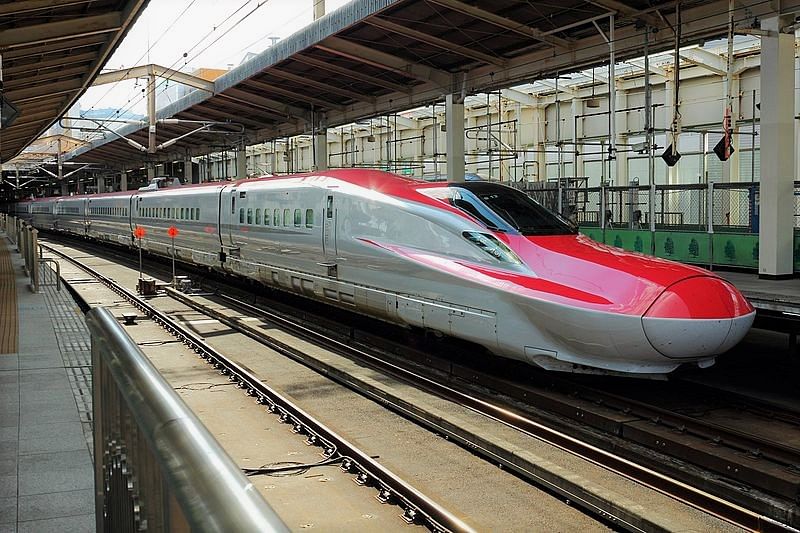Japan has given Rs 5,500 cr so far, while railways & state govts have provided none. The project needs 1,400 hectares of land but has acquired only 0.9.
New Delhi: India’s first bullet train project connecting Mumbai and Ahmedabad is scheduled to be completed by August 2022. But the agency building it, the National High-Speed Rail Corporation Limited (NHSRCL), has been facing funding problems as well as land acquisition issues over the last 10 months, when the groundwork for the project was laid.
Money trouble
The project — with an estimated cost of Rs 1,06,000 crore — is supposed to be funded by the Japan International Cooperation Agency (JICA), the Ministry of Railways and the governments of Maharashtra and Gujarat.
Also read: Modi’s 320 kmph Bullet Train has starting trouble
JICA is supposed to pay 80 per cent of the cost — Rs 86,000 crore — but so far, only the first tranche of Rs 5,500 crore has been disbursed in September.
The Railways Ministry is supposed to provide Rs 10,000 crore, while the two state governments are supposed to provide Rs 5,000 crore each. None of them have released any money so far.
Vinayak Chatterjee, chairman of the infrastructure firm Feedback Infra, said this is likely to push the project back by a long time.
“This means the 2022 or even 2023 completion target will be hugely challenging,” said Chatterjee.
However, a spokesperson for NHSRCL said: “We are still in the tender floating process, and as and when we would need money, we shall spend it on our own and we’ll get it reimbursed later.”
The spokesperson didn’t indicate how the new body would find money to spend in the first place if JICA and the governments didn’t release funds.
However, he added: “In the first six months of next year, we’ll be able to finish all the tendering process. The work shall begin in full swing from July 2019.
“So far, two tenders have been floated — one for the Vadodara institute, for which 30-40 per cent work has been already done, and another for the Sabarmati terminus, for which the tender has been awarded as well. This will take some time.”
Land acquisition
The NHSRCL has managed to acquire just 0.9 hectares of land so far, while the total requirement of land is 1,400 hectares. NHSRCL sources said land acquisition was the bigger challenge as of now.
“Even though surveys are going on for long stretches and a tunnel, land acquisition is a major hurdle in the work progress. In this project, approximately 300 villages are to be affected, out of which 250 have undergone measurement surveys already,” a source said.
“In Gujarat, there are issues related to compensation, and the matter is pending in court. Of the five petitioners, four have withdrawn their petitions.
Also read: As India heads into election season, tracking the selective silence of Narendra Modi
“Meanwhile, in Maharashtra, there are people who have been protesting against the bullet train. They say that they don’t need a bullet train. There are people whose land will not be affected but they are still protesting and bringing a political angle to it,” the source alleged.
The compensation process
For Maharashtra, NHSRCL is paying four times the circle rate of the land, a 25 per cent bonus, plus an additional amount of Rs 5 lakh. It is offering Rs 3,600 per month for loss of livelihood.
For forest land, 50 per cent of the compensation is going to displaced persons, and the remainder to the state government.
In Gujarat, the state government plans to offer farmers either 4.75 times the existing state government prices, or the average rate within a 1.5-km radius, whichever is higher.
